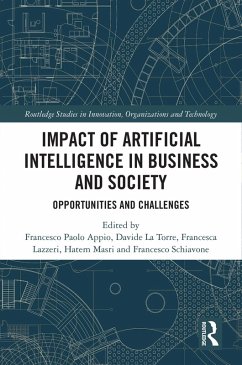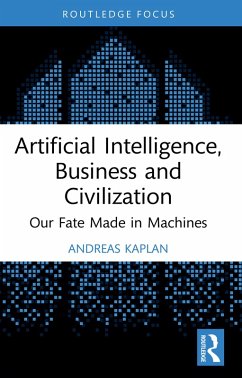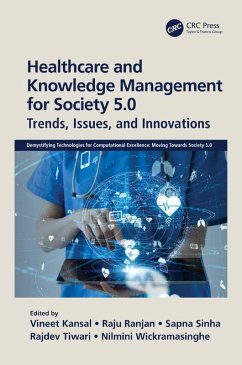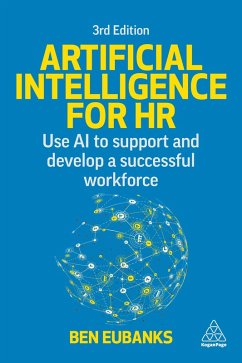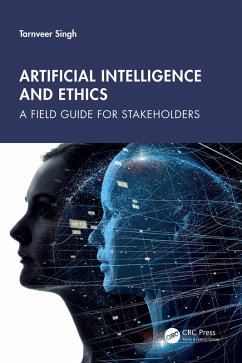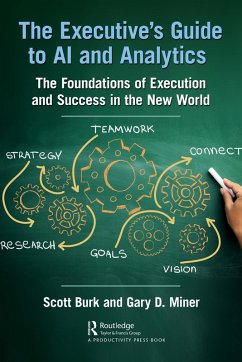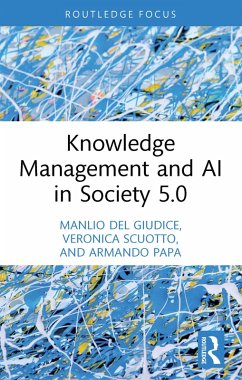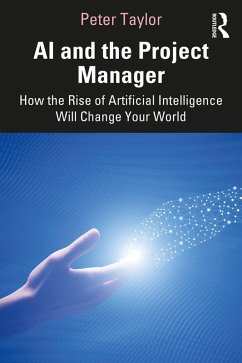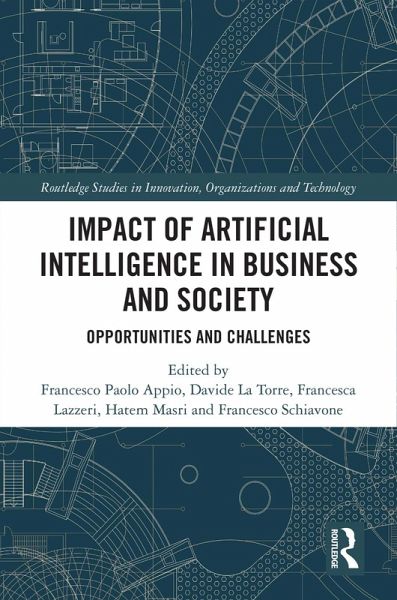
Impact of Artificial Intelligence in Business and Society (eBook, ePUB)
Opportunities and Challenges
Redaktion: Appio, Francesco Paolo; Schiavone, Francesco; Masri, Hatem; Lazzeri, Francesca; La Torre, Davide
Versandkostenfrei!
Sofort per Download lieferbar
39,95 €
inkl. MwSt.
Weitere Ausgaben:

PAYBACK Punkte
20 °P sammeln!
Belonging to the realm of intelligent technologies, it is increasingly accepted that artificial intelligence (AI) has evolved from being merely a development standpoint in computer science. Indeed, recent reports and academic publications show that we are clearly on the path toward pervasive AI in both business and society. Organizations must adopt AI to maintain a competitive advantage and explore opportunities for unprecedented innovation. This book focuses on understanding the wide range of opportunities as well as the spectrum of challenges AI brings in different business contexts and soci...
Belonging to the realm of intelligent technologies, it is increasingly accepted that artificial intelligence (AI) has evolved from being merely a development standpoint in computer science. Indeed, recent reports and academic publications show that we are clearly on the path toward pervasive AI in both business and society. Organizations must adopt AI to maintain a competitive advantage and explore opportunities for unprecedented innovation. This book focuses on understanding the wide range of opportunities as well as the spectrum of challenges AI brings in different business contexts and society at large.
The book highlights novel and high-quality research in data science and business analytics and examines the current and future impact of AI in business and society. The authors bridge the gap between business and technical perspectives and demonstrate the potential (and actual) impact on society. Embracing applied, qualitative, and quantitative research as well as field experiments and data analysis, the book covers a broad range of topics including but not limited to human-centered AI, product and process innovation, corporate governance, AI and ethics, organizational performance, and entrepreneurship.
This comprehensive book will be a valuable resource for researchers, academics, and postgraduate students across AI, technology and innovation management, and a wide range of business disciplines.
The book highlights novel and high-quality research in data science and business analytics and examines the current and future impact of AI in business and society. The authors bridge the gap between business and technical perspectives and demonstrate the potential (and actual) impact on society. Embracing applied, qualitative, and quantitative research as well as field experiments and data analysis, the book covers a broad range of topics including but not limited to human-centered AI, product and process innovation, corporate governance, AI and ethics, organizational performance, and entrepreneurship.
This comprehensive book will be a valuable resource for researchers, academics, and postgraduate students across AI, technology and innovation management, and a wide range of business disciplines.
Dieser Download kann aus rechtlichen Gründen nur mit Rechnungsadresse in A, B, BG, CY, CZ, D, DK, EW, E, FIN, F, GR, HR, H, IRL, I, LT, L, LR, M, NL, PL, P, R, S, SLO, SK ausgeliefert werden.




